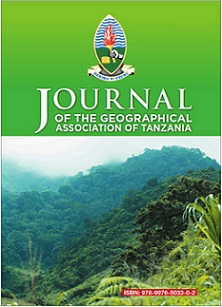The Impact of Human Migration on Land Degradation in Mpanda District, Katavi Region in Tanzania
Abstract
The study on the impact of human migration on land degradation was conducted infiveselected wards of Mpanda district. Over the years, human population has been
increasing in Mpanda district. The increase in population have changed land use
systems that have caused a reduced land cover and subsequent land degradation. The
main objective of this study was to examine the relationship between the increase in
human population and land degradation over a period of 30 years from 1985 to 2015.
Specific objectives of the study sought to: determine the extent of land degradation
emanating from human activities, to assess the relationship between and human
activities on land use and land cover changes, to assess and describe the types of land
conservation and management measures that are practiced in Mpanda district. To
achieve these objectives, the study utilized three land-sat satellite imageries (1985 TM,
2000 ETM and 2015 ETM+) that were processed and analyzed using GIS software to
produce GIS maps to detect and quantify land cover changes in Mpanda district during
the years: from 1985, and 2000 to 2015. A field observation and household survey was
also carried out in the study area to identify the activities that are responsible for land
use changes and degradation. The results showed that since the 1985 to 20015,
Mpanda district has experienced a rapid growth in human population density during 30
years since 1985. The growing trend of the population and consequent demand for
food, energy, and area for settlement and agriculture have considerably altered land
use practices, reduced natural vegetation cover stratum and severely caused land
degradation at large. In order to correct this anomaly,the local population can be
sensitized on the importance of growing trees and seedlings can be planted in
nurseries for onward transmission to these lands. Similarly, pastoralist can be
encouraged to practice zero grazing in a bid to manage grazing lands. The movement
of people with their livestock should also be restricted to control the rate of vegetation
growth. Such measures will prevent land exhaustion that is a constant threat to the
biodiversity of the environment.
Downloads
Published
2016-02-12
Issue
Section
Articles


